Nigeria
Like millions of fellow Nigerians, Rotimi Bankole says he wants to use Saturday's (Feb. 25) presidential elections to push for a better life in his oil-rich but crisis-ridden country.
Double digit inflation, weak economic growth and mounting insecurity are key concerns for Nigerians voting in general elections on February 25.
"Nigeria has been so difficult to cope and live in," Bankole said. "Survival has been tough."
For years, the 54-year-old struggled to take care of his family of five while doing two jobs.
Recently, he took on a third job -- driving a taxi -- but still that could only make an extra 5,000 naira ($11) -- hardly enough in a country where cost of living has spiralled to record levels.
Africa's largest economy and the continent's top oil producer has resources and wealth, but the global pandemic and the economic fallout from the war in Ukraine hit the country hard in Buhari's last term.
Compounding economic hardships, the country has been hit with fuel shortages and also a scarcity of cash after the central bank began to swap old naira notes for new bills.
A chronic shortage of cash has created lines outside banks and triggered protests in some cities, even as the central bank says the policy is needed to curb the amount of cash outside the banking system.
Bankole started driving a taxi two months ago, but the recent major fuel and cash scarcity has compounded his misery.
He spends long hours on queues at petrol stations, paying as much as 330 naira for a litre as against 165 previously.
Even running his school has been tough as parents struggle to pay fees while his printing business is struggling.
"We cannot continue like this as a people," he said.
"Let's vote for people that can do this Nigeria and make Nigeria well again. Nigeria is very sick as at we are now. So this election, we should not miss it at all, we should try as much as we can to vote the right person, credible person, into the helms of affairs," he urged his compatriots.
Presidential hopefuls
Saturday's election has developed into a tight three-way race for the presidency, with the frontrunners all touting their past government experience and business acumen for the country's top job.
Ex-Lagos governor Bola Ahmed Tinubu of the ruling All Progressives Congress or APC is facing former vice president Atiku Abubakar of the main opposition Peoples Democratic Party (PDP) and Peter Obi of the Labour Party, a surprise third party candidate with high youth appeal.
Although Nigeria's economy rebounded after COVID-19 pandemic, growing three percent in 2022, some say the recovery has not trickled down to improve conditions for most Nigerians.
Nigeria’s unemployment rate is about 33 percent while the number of Nigerians living in poverty rose to 133 million or 63 percent of the population in 2022, according to the national statistics bureau.
Falling oil revenues, growing insecurity from criminal gangs, heavy flooding that hit farming land have combined to make things worse.
Youth unemployment now stands at 43 percent, compared to 10 percent prior to Buhari's first administration in 2015.
The naira currency has fallen from an average of 200 naira to a dollar in 2015, to around 750 on the parallel market.
According to Sola Oni of Sofunix Investment, "the inclement operating environment in Nigeria, characterized by inflationary pressure, low purchasing power amongst others, will continue to heighten poverty level."
Recently, Nigerian manufacturers warned they faced a production shortfall of 25 percent if petrol and cash shortages were not resolved soon.
"This situation is not good for anyone, the industry, the government and the ordinary citizen," said Segun Ajayi-Kabir, the leader of the country's manufacturers association.
"You will have a compounded crippling lack of patronage for the domestic manufacturer; the denial of government revenue that would have accrued from consumption taxes and the disruption of the daily life and needs of the average Nigerian."




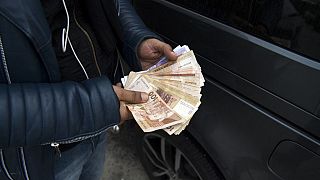
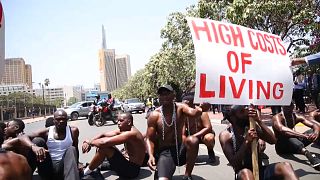
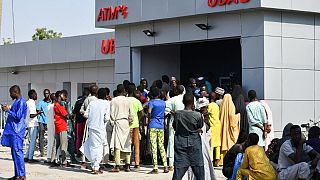

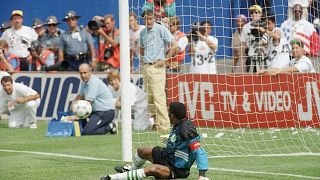



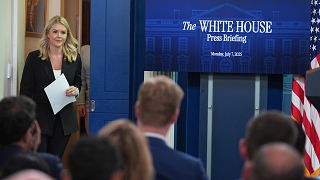
Go to video
WAFCON: Super Falcons fans optimistic about the team's performance
01:06
Brazil launches major security operation ahead of BRICS Summit
11:15
AI drones lead breakthrough against malaria in Africa [Business Africa]
02:18
Netherlands returns 119 artifacts looted from Nigeria
Go to video
Evacuations begin: African citizens caught in Israel-Iran crossfire
02:08
Gunman attack in north-central Nigeria: death toll climbs to 150